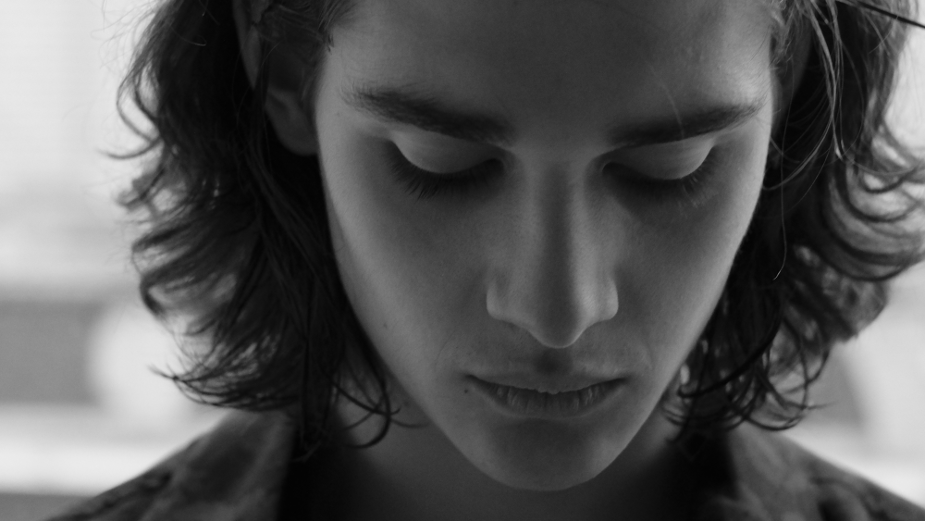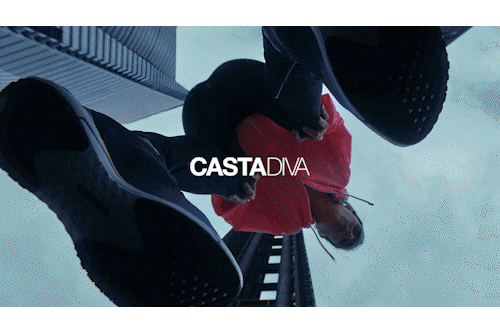
Uprising: The Single-Minded, On-Set Lifestyle of Ramy Moharam Fouad

Ambassadors, the Dutch creative studio with offices in Amsterdam and New York, has partnered with Little Black Book to sponsor the Uprising Channel. The channel gives a voice to important talent in the industry who often don't get the opportunity to share their thoughts and opinions, as this is something often reserved elsewhere for c-suite executives only. Ambassadors’ support means that the industry’s top talent will have an even louder voice on LBB’s global platform.
---
Growing up in Antwerp with his mother and older brother, Ramy Moharam Fouad grew up feeling nurtured and encouraged creatively, set free to pursue his hobbies and passions. He came from a creative family. His mother sang, played violin and piano as a kid and was a great photographer too. “No wonder we both grew so interested in choosing a creative path,” Ramy says. “But she never turned it into her job herself. She chose her other passion: helping people.” She graduated as an anthropologist and now she works as a therapist.
Although he grew up without his father, who is half Egyptian, half Lebanese, Ramy’s mother made sure he learned about his culture. His grandfather, Moharam Fouad, had been a well-known singer and actor in Egypt. “Unfortunately he passed away too early and I never got the chance to meet him,” says Ramy, but the family listened to his music often as kids.
Both Ramy and his brother, Tamino, have always been ambitious. As soon as they knew what they wanted to do in our lives, they didn’t hesitate for a moment to fully go for it. Although Ramy is now a director represented by Czar, his first great passion was acting - a craft he trained in for over ten years. It was Tamino who wanted to become a director in the first place. The pair used to perform plays for their mother and grandparents. Tamino was the one who directed, while Ramy acted.
“Funny that in a way we switched roles when growing up,” he notes. His brother discovered his passion and talent in music, and simultaneously Ramy picked up his first camera. It all happened quite spontaneously. Ramy was working in a bakery at that time. He enjoyed it, but eventually they fired him because he was always late. “Waking up at five in the night to start to work at seven in the morning wasn’t really for me,” he confesses. Tamino needed pictures for his music projects and since Ramy had a camera, the brothers decided to work on it together. One thing led to another and it led to Ramy being only 16 years old when he directed my first music video for him (for the track Cigar) and made the artwork for his first EP.
“Translating the story you had in mind for so long already into real images on set, by directing a strong team around you… It felt like butterflies in my tummy. I remember walking in on set as a 16-year-old little kid, being scared as hell. But the entire crew respected me and followed me in my vision. I’m very grateful for this wonderful first experience they gave me. I think it’s there on set where the seeds really started to grow.” At that point Ramy knew that directing was his dream and ever since he’s worked day by day to make sure he’s fulfilling it.
Before he knew it, Ramy started to “roll into the music industry” both as a photographer and director. He worked for several bands in Belgium, directing their music videos, creating their album artwork and touring as a live/behind the scenes photographer with some as well.
When he graduated from high school he went to film school in Brussels (Luca School of Arts). By which time he already had an impressive body of work for someone his age. He’s graduating in September 2021, but says “it’s been a tough ride”. As he was already active in the industry before he started my studies, Ramy’s been on a constant search for balance between school and work. “I never really managed to find that balance,” he says. His teachers expected him to prioritise lessons and assignments, but he didn’t want to give up the creative, professional path he was already walking.
After doing his first year twice and “lots of other difficulties”, Ramy’s finally working on his graduation film. “I think almost any art school is a great place to experiment and search for your own language as a creative, but for me it wasn’t a match made in heaven at all.” That said, it’ll definitely be worth looking out for that graduation film.
Ramy’s career has been his top priority since he first began directing and he’s glad he’s made sure that’s the case. “I feel myself growing with every project I work on,” he says, whether it’s a photography job or directing. Now he has a portfolio that spans short films, music videos, fashion films and commercials as a director and album artwork, press pictures, portraits and his own creative photography as a photographer. “I learned my craft by throwing myself and just going for it on set, through hard work and perseverance and of course the luck of being able to work with such wonderful people time and again.”
It was with the music video for Tamino’s Persephone that he really felt a change in his career, “or actually even more in myself,” he considers. “It was such an intense process, but once we finished it, I felt much more secure as a director. We truly managed to translate our vision into a strong and deep visual work. It’s one of the few projects I’m able to look back to without wanting to do everything all over again.”
Lately he’s been working on several fashion films for Antwerp based designer Jan-Jan Van Essche and again, this feels like an important step in his career. It’s the first time Ramy’s worked with choreography, where he’s been able to join forces with dance legend Sidi Larbi Cherkaoui.
It’s something completely different from the kind of projects Ramy’s worked on before, but at the same time it feels comfortable for him. “Being able to translate the story Jan-Jan wants to tell with his clothing into a visual experience is heavenly. I had so many encounters I will never forget. So many beautiful people passed by both in front of and behind the camera. Of course, that’s one of the many reasons why I’m in this industry.”
There’s no way for Ramy to approach a project other than throwing himself completely into it. “I feel like I owe that to the people I work with. It’s their story I have in my hands, so I better make sure I’m giving everything I’ve got,” he says. His loved ones tell him he’s “a crazy workaholic. “And I don’t deny it, I’ve made many sacrifices for my passion.” He knows work-life balance is something he needs to work on. “Maybe it’s a doomed existence as a creative, but you always take your work home with you. You walk around with it, day by day. You go to sleep with it every night. The ideas, stories, pre and post productions aren't something you’re able to shut off once you arrive home. Of course, once you’re on set and all the stress you had for weeks or months results into a truly magical moment on your monitor, it was all worth it. “Still, it’s an ongoing search to find out how not to drown myself in every project I work on. Maybe it’s something you learn by growing older.”
Storytelling is a priority for Ramy, and taking the time to nurture a narrative in every film he makes. In times where he feels short, bombastic visuals and attention-grabbing sound design seem to dominate, he wants to champion the slow-burning and the subtle. “But we often forget to listen and watch meaningful and important stories, especially when it comes down to shorter visual works. So I try to fight slow storytelling. I realise it’s a lot to ask from your audience, definitely in commercial projects, but I feel like the people who need or want to see my films will eventually do so. Even if it takes them much longer than the average visuals.”
He’s encouraged whenever he sees other filmmakers fighting this battle as well. He looks up to those “who dare to take their time for the stories they think are important to tell.” A favourite is Spike Jonze, who “manages to come with important stories over and over again, brought in a way that’s easily understood.”
Recently Ramy also got the chance to pick up his first love again when he was cast for one of the leading roles of a new Belgian series called F*** You Very, Very Much, written and directed by his friend Bert Scholiers. “It feels great to be able to work on the other side of the camera as well. Especially in such an amazing story as this one,” he says. It was nice not to have to shoulder the ultimate responsibility of a film for once. All Ramy had to do was make sure he put in his best performance for the scenes he was in. “At first it felt a bit weird, some days I really felt like a tourist on set, but eventually I learned to enjoy this position”. Since this experience he feels more and more attracted to working on this side of the camera again, so he hopes to keep it up.
Whether it is in front or behind the camera, Ramy knows where he feels the greatest sense of belonging: “I feel alive on set. It’s one of the most magical moments in a process and I think I couldn’t live without it.”
Image: Pablo Cepeda















